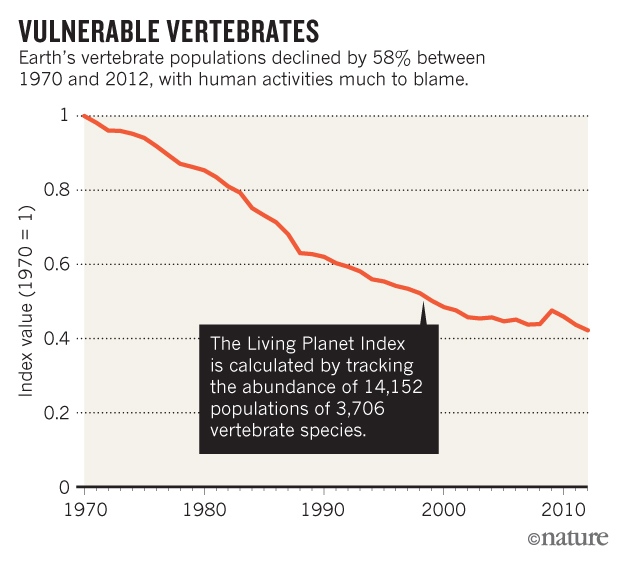I'm surprised this thread hasn't received more attention. Especially after I posted an article suggesting that indiscriminate pesticide use and expansion of agricultural lands are a more serious issue than climate change, citing clearly worrying consequences already observed - and from The Guardian no less!
Someone who didn't know any better would surely have expected contrarians to come pouring in from miles around, leaping on an opportunity to point and laugh at those alarmists fixating on mere climate change.
But it seems there's a little secret here. Well, not all that secret, really. The observed declines in wild animal populations, insect and vertebrate alike, share in common with climate change the fatal flaw that "the market will fix it" is an obviously absurd response. Of course it's a lot harder to try casting doubt on already-observed and disturbing consequences obviously traceable to human actions than on nebulous atmospheric changes whose consequences are only beginning to become clear: So instead of denial and 'scepticism,' what we (mostly) get in this case is simple silence and anecdotal reports that maybe it ain't all that bad.
No calls for more research into the consequences and stronger regulation on the use of pesticides, of course.
No expressions of concern about depletion of global fisheries and demand for more no-catch zones.
No acknowledgement of the inefficiencies of meat (especially beef) production, along with growing food for cars as an expedient cop-out 'response' to global warming, and consequent habitat destructions as these inefficiencies expand throughout the world.
I'd be the first to admit my own fondness for meat and concerns over how I am contributing, but the apparent reluctance to even discuss these issues is telling - the silence is deafening.

